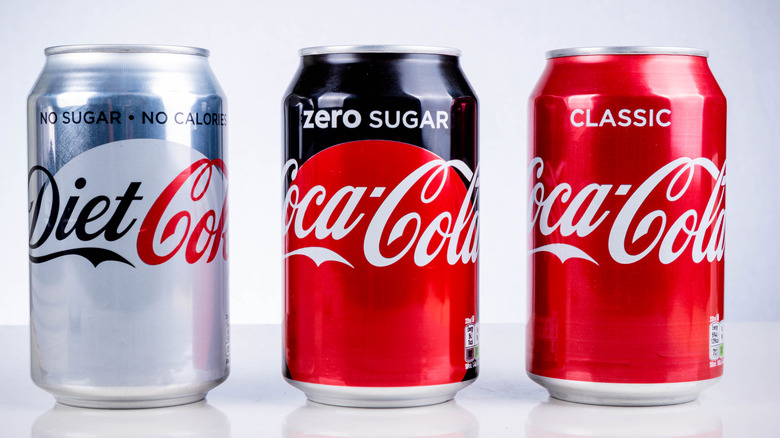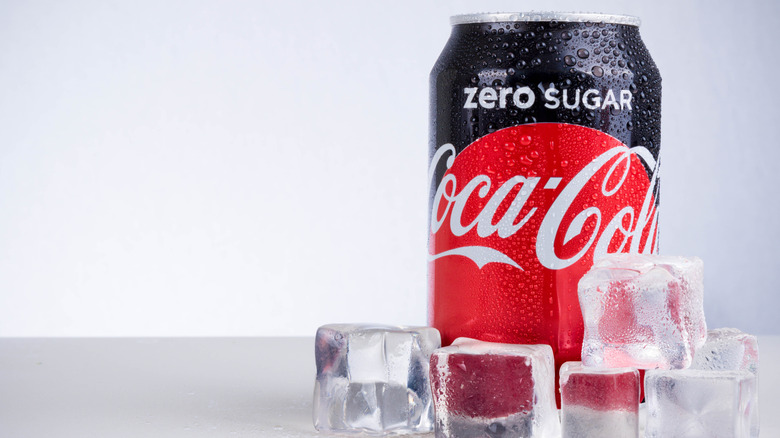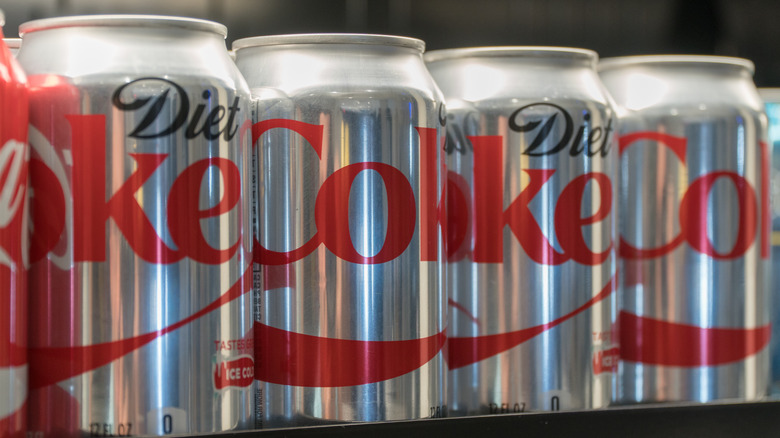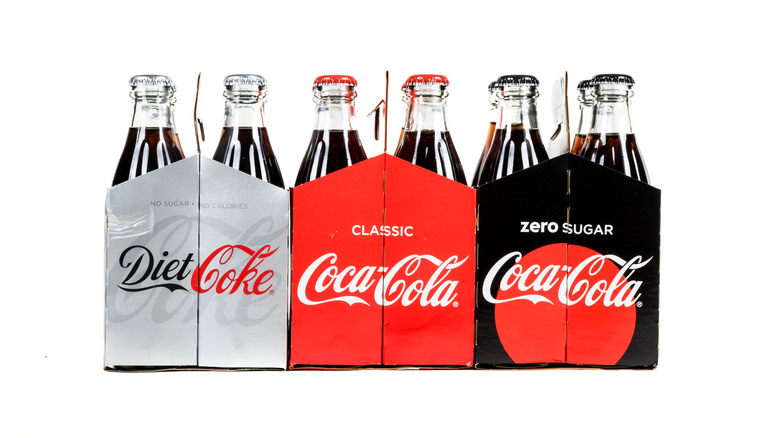The Main Differences Between Diet Coke And Coke Zero
Created in 1886, Coca Cola has been an American favorite for more than a century. That being said, when a company's been around for as long as Coca Cola has, it can go one of two ways: stick with what it does best, or make a name for itself as an innovative and adaptive brand. Naturally, Coca Cola has chosen to do both.
As such, today's beloved Coca Cola is still very much the same as it was a century ago — minus the cocaine, of course. (Sorry, Mom and Dad, that's not just a Coca Cola urban legend.) However, the company has also branched out in recent years to create different Coke flavors, as well as versions with fewer calories, less sugar, or, on the other end of the spectrum, an added boost of caffeine. But names can be confusing. For instance, what's the difference between Diet Coke and Coke Zero? Wouldn't you expect them to be the same thing?
Diet Coke and Coke Zero have different ingredient lists
Though the differences aren't immediately obvious, Diet Coke and Coke Zero do feature slightly different lists of ingredients. Diet Coke, for instance, does not contain any calories or sugar, and it lists citric acid among its ingredients. Coke Zero, on the other hand, does not contain citric acid, but it does include potassium citrate. Other than that, the only difference in the ingredients list is that Coke Zero also includes acesulfame potassium as an alternative sweetener. Like Diet Coke, Coke Zero also does not carry any calories or sugar.
Another small difference between the two drinks is their caffeine content. A single 12-ounce can of Diet Coke contains 46 milligrams of caffeine, while Coke Zero contains only 34 milligrams of caffeine. For comparison, a can of regular Coke also contains 34 milligrams of caffeine. So why does Diet Coke have more caffeine than other versions of Coke? One Coca Cola spokesperson explained to Beverage Daily that "caffeine is used to enhance the flavor" of the drink, supposedly adding a touch of bitterness to balance out the other elements.
Do Diet Coke and Coke Zero taste different?
Any Coke connoisseur can automatically tell you that each and every version of Coca Cola is going to taste different. Even Diet Coke and Coke Zero, with their minute differences in ingredients, have their own individual flavor profiles. Though it sounds hard to believe at first, it makes sense when you think about the ingredients and the intentions behind them.
According to the brand itself, Coke Zero was formulated specifically to taste like the original Coke, minus the sugar. That being said, a Taste of Home review described the latest Coke Zero as an "acceptable alternative" to regular Coke, but with an "unfamiliar spiciness."
Diet Coke, on the other hand, was never meant to taste exactly like Coke, instead touted to stand on its own. As mentioned previously, neither Coke Zero nor original Coke contains citric acid, so that ingredient alone sets Diet Coke apart. Coca Cola itself even touts Diet Coke as having a lighter flavor than its other drinks, so we know there's got to be some distinctiveness to the "natural flavors" used in each drink's formula.
The history of Diet Coke and Coke Zero
Although Coca Cola has been around for a long time, it wasn't until much more recently that Diet Coke and Coke Zero came about. When Diet Coke was introduced in 1982, the company opted to lowercase the "d" in "diet" for trademark reasons. After several decades of popularity and a cult-favorite status, Diet Coke is again under scrutiny, per The Atlantic. Many people are shying away from artificial sweeteners — particularly aspartame, which is found in both Diet Coke and Coke Zero — and embracing water, seltzers, and beverages with fewer risky ingredients.
Coke Zero launched in 2006 and from the start was advertised to look and taste like the original Coke. However, the drink was rebranded in 2017 as Coke Zero Sugar, at which point, according to The New York Times, Coca Cola promised to get the formula even closer to that of the original Coke. As of 2021, the company was still trying to work out the flaws in its Coke Zero recipe, so we can only wait and see. Considering the fact that some critics despise the taste of Coke Zero, while others think its recipe should remain as is, it's unlikely that the new recipe will unveil to a neutral response.



